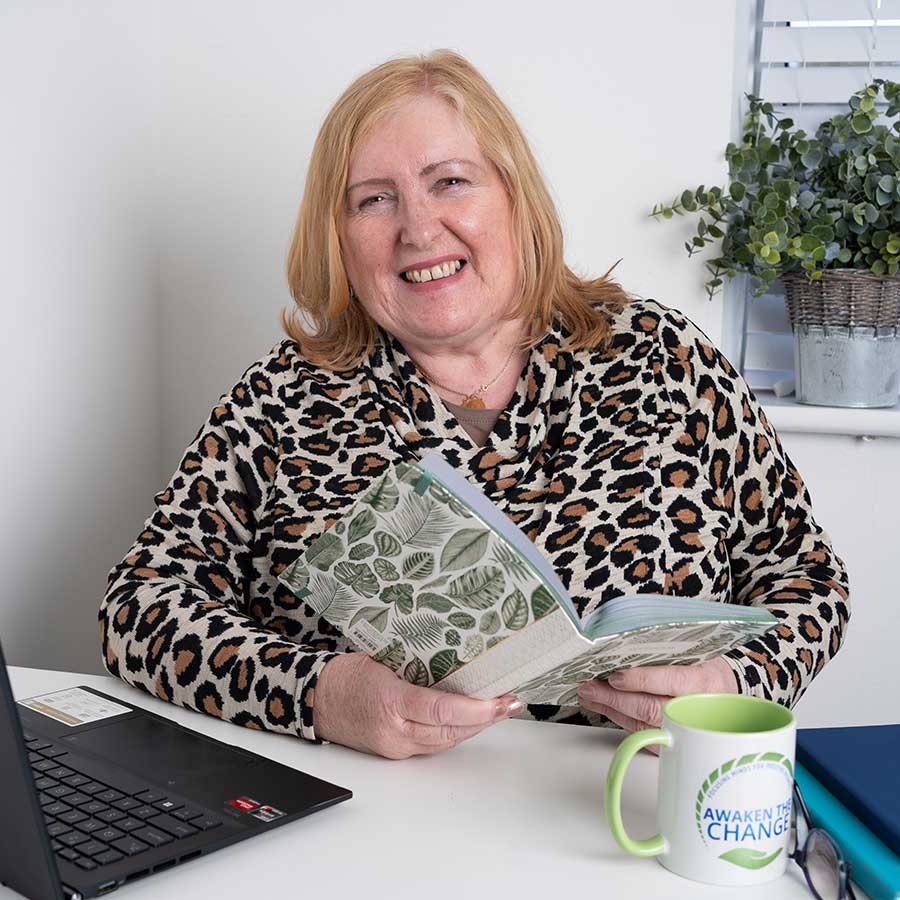
When you’re considering hypnotherapy or counselling, one of the most essential ingredients for success is trust. Trust allows you to feel safe, open up, and do the work that leads to real change. Without it, even the best techniques may fall flat.
But how do you know if you can trust a therapist? And how can you be sure that the person you choose is credible, ethical, and right for you?
It’s just like any other service. You need to gather information and make a decision.
Everyone experiences similar thoughts and feelings when searching for a therapist. You don’t want to waste money, you need results, and you want someone experienced and qualified to help you.
At Awaken the Change, I often meet people who feel nervous about starting therapy. It’s perfectly natural. After all, you are sharing personal thoughts and feelings, sometimes things you’ve never told anyone else.
I was honoured once by a client who shared a secret that he had kept in his head for over forty years. This problem had been bothering him all his life.
This blog will guide you through why trust matters and how to check the credibility of a hypnotherapist or counsellor before you begin.
Why trust is so important in therapy work
Many people use the word trust, but what does it really mean? There are many ways of understanding trust.
It can be a verb or a noun, but most people think of trust as being a good thing. The dictionary starts by defining trust as:
reliance on the integrity, strength, ability, surety, etc., of a person or thing; confidence.
Trust is the foundation of any good therapeutic relationship.
Here’s why it matters:
Safety and comfort – You need to feel safe enough to relax. In hypnotherapy, this is especially important because relaxation is key to accessing your inner resources.
Openness and honesty – If you don’t trust your therapist, you might hold back. That means missing out on the very breakthroughs you’re hoping for.
Better results – Research shows that the “therapeutic alliance” – the bond between therapist and client – is one of the strongest predictors of success, no matter which techniques are used.
But remember, trust can look and feel different to different people. So, you might not develop the same positive feelings for a therapist as a friend reports.
How to Check the Credibility of a Therapist
When searching for a hypnotherapist you can trust, take time to check their background. Here are some practical steps you can follow:
1. Look at Qualifications and Training
A professional hypnotherapist or counsellor should have completed recognised training.
Unfortunately, some courses are very short and some longer, so they include many more aspects of therapy.
There is no mandatory training for hypnotherapists or counsellors, but many training organisations in the UK adhere to the standards of ethical practice.
Other therapists, such as Reiki masters, aromatherapists, and EFT practitioners, also have training, but the quality of the training will vary.
2. Check Professional Memberships
Belonging to professional bodies shows commitment to ongoing learning and ethical practice. Many hypnotherapists also have backgrounds in counselling, coaching, or healthcare. This adds depth to their work.
In the UK, look for therapists registered with bodies such as:
For hypnotherapy-
General Hypnotherapy Register (GHR)
National Council for Hypnotherapy (NCH)
National Hypnotherapy Society (NHS)
For counselling-
The British Association for Counselling and Psychotherapy (BACP)
National Counselling and Psychotherapy Society (NCPS)
(There are hundreds of other counselling professional bodies, many being linked to specific counselling training).
General professional bodies for therapy-
National Complementary and Natural Healthcare Council (CNHC)
Federation of Holistic Therapists (FHT)
(Many more organisations are also for specific therapies)
These organisations set standards for training and ethics.
3. Read Reviews and Testimonials
Reviews and testimonials can give you an idea. Sometimes people will write a bad review, but if the majority of reviews are good, you use these with the other information that you have gained to make a decision.
What do other actually clients say? Are there patterns that indicate the service is professional, friendly, and effective?
While everyone’s experience is different, reviews can give you an idea of a therapist’s style and experience in certain areas.
4. Ask for a Free Consultation
A short conversation, often online, is the best way to get a feel for someone. Notice how you feel when you speak to them:
Do they listen? Do they explain things clearly? Do you feel at ease?
You want to get a sense that they have heard your problem and can help you find a solution.
5. Check Experience and Specialisms
Some therapists focus on helping people with relationships, children or addictions, while others can help with stopping smoking, stress and anxiety, grief, or exam stress. Choosing someone with experience in your specific concern and your age group can make a big difference.
Some therapists work online, while others work in an office or from home, or use a variety of contact methods.
Many therapists also have information about themselves on directories.
Questions You Can Ask a Potential Therapist

Don’t be afraid to ask questions.
A trustworthy therapist will welcome them.
Here are a few to start with:
Have you helped other people with this problem before?
What training and qualifications do you have?
Are you registered with a professional body?
What experience do you have with people in my situation?
What can I expect from hypnotherapy sessions?
How many sessions might I need?
What hours/ days do you work?
Trusting Your Instincts
Beyond qualifications and experience, trust also comes down to gut feeling.
If the therapist reminds you of someone that you don’t like, then they might not be the right person to help you.
Sometimes you just know when someone feels right.
Therapy works best when you feel a connection, so trust your instincts as well as the facts.
Building Trust at Awaken the Change
At Awaken the Change, I offer a free initial consultation because I believe you should never feel pressured into working with someone who doesn’t feel right for you.
I am fully qualified, registered, insured and experienced in helping people with stress, anxiety, bereavement, and learning challenges. Most importantly, I work alongside you to help you get the results that you want. However, if you’re looking for something unrealistic, I will tell you, as it happens sometimes. For example, if you want me to access memories from a child to find out if you were abused, I wouldn’t do that, as memories are constantly changing, and you wouldn’t get an accurate recall. This is why hypnosis isn’t used in courts of law in the UK. But I could help you to deal with the uncertainty and get on with your life.
Next, I don’t “fix” people, but I help you find your strength to make the changes you want.
Final Thoughts
Finding the right therapist isn’t just about searching for “counselling or hypnotherapist near me” or “therapy for anxiety” online. It’s about finding someone you trust, who makes you feel safe and supported, and who has the credibility to guide you with skill and professionalism.
When you find that trust, therapy can be life-changing.
If you’d like to explore whether I’m the right therapist for you, I’d love to hear from you. Visit www.awakenthechange.com to book your free consultation today.


